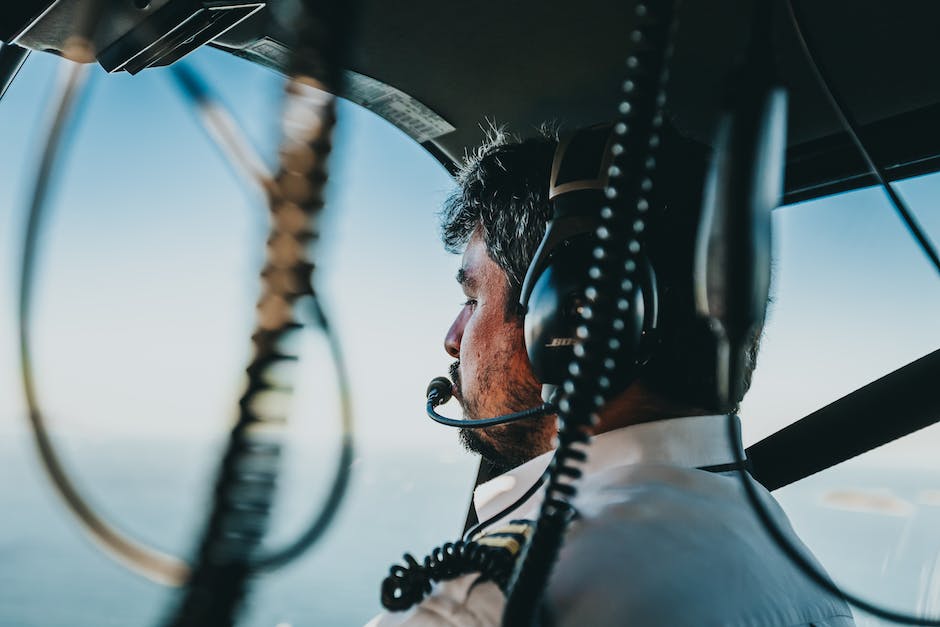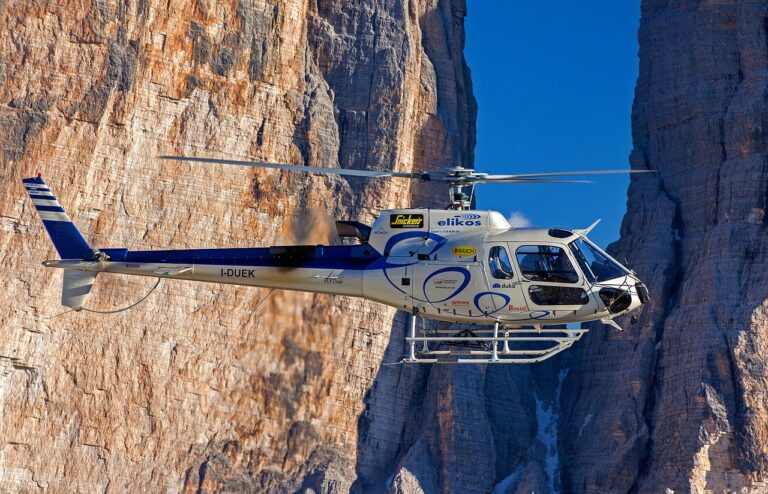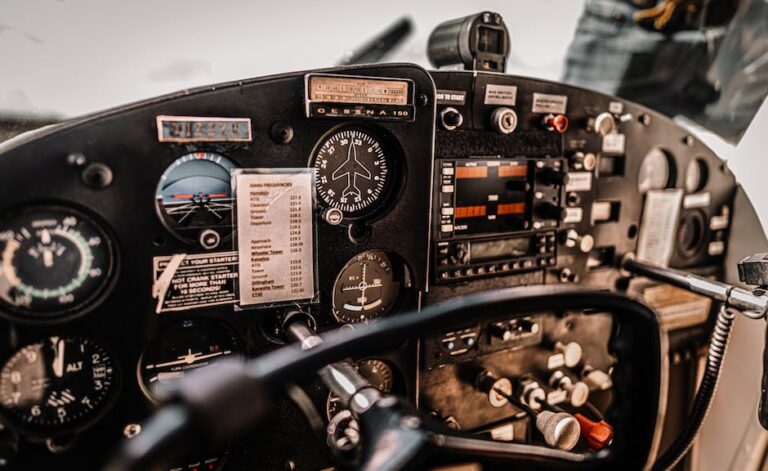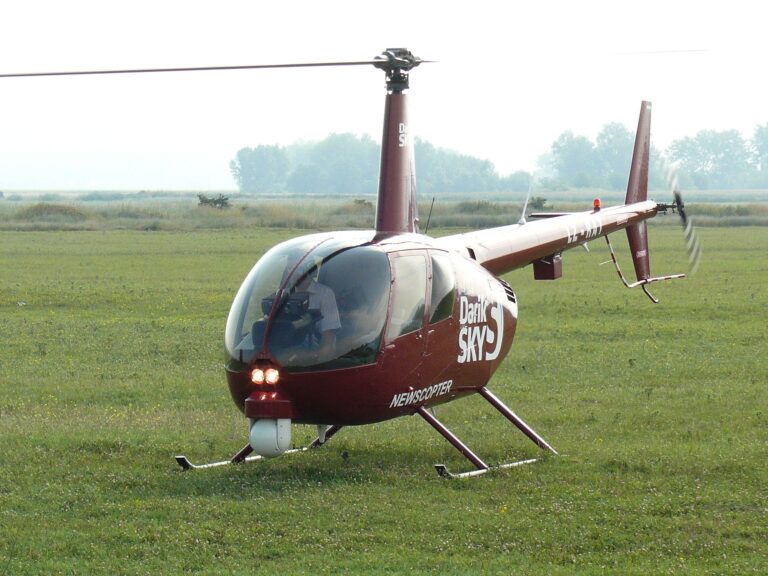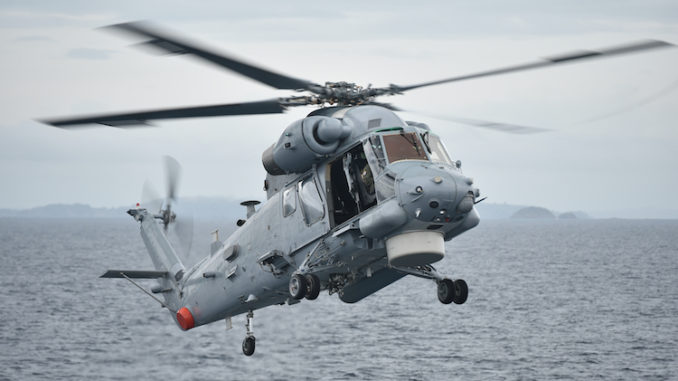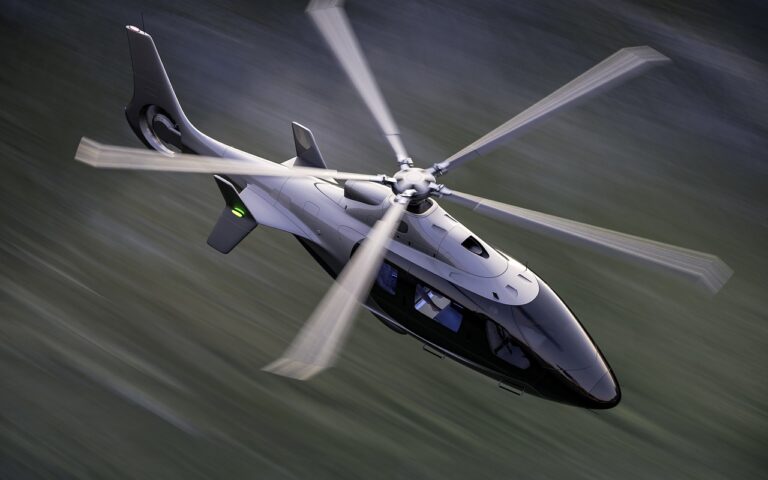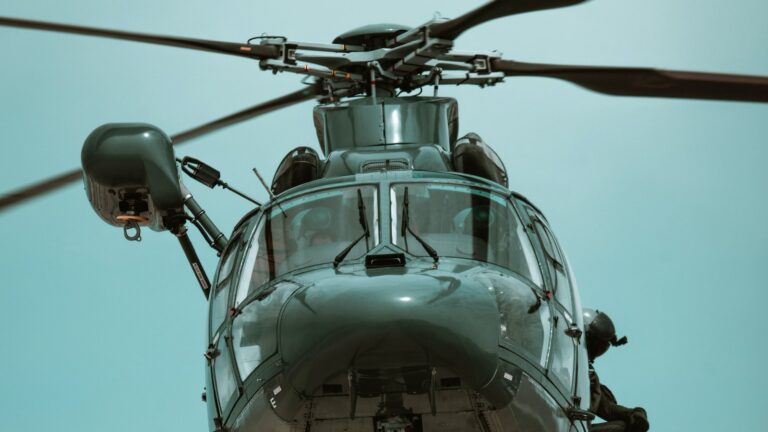Is It Better to Be a Helicopter Pilot or Airplane Pilot
Helicopter pilot or airplane pilot – both take to the skies, but which is the better choice? It’s a question that aspiring aviators ponder as they navigate the world of flight. While each brings its own unique experiences and challenges, there is no definitive answer. In this article, we delve into the realm of aviation to explore the differences between these two aerial pursuits and help you decide which path may be better suited for your flying ambitions. So fasten your seatbelts, keep your tray tables stowed, and let’s take off into the world of helicopter and airplane piloting.
Table of Contents
- Helicopter Pilot vs. Airplane Pilot: Exploring the Career Prospects and Differences
- Navigating the Skies: The Skill Set Required for Helicopter Piloting
- The Freedom of the Skies: Advantages of Being an Airplane Pilot
- Up in the Air: The Challenges and Thrills of Helicopter Piloting
- Decision Time: Choosing Between Helicopter and Airplane Pilot Training
- Taking Flight: Considerations when Pursuing a Career as a Helicopter or Airplane Pilot
- FAQs
- Wrapping Up
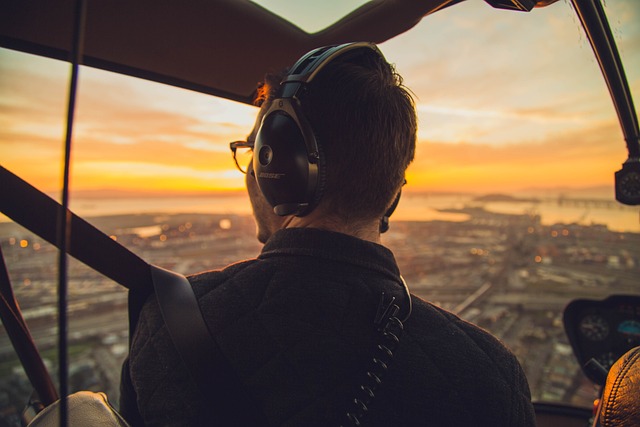
Helicopter Pilot vs. Airplane Pilot: Exploring the Career Prospects and Differences
When considering a career in aviation, it’s essential to understand the contrasting worlds of helicopter and airplane piloting. These two fields not only differ in the types of aircraft they operate but also present distinct career prospects.
One key difference lies in the range and versatility of the aircraft types. Helicopters, with their ability to hover and take off vertically, offer pilots the opportunity to access remote and challenging locations. This flexibility opens up a range of potential career paths, including search and rescue operations, emergency medical services, aerial firefighting, and offshore oil rig transport. On the other hand, airplane pilots, with their emphasis on long-haul and intercontinental flights, find themselves in demand for commercial airlines, cargo transportation, and even military aviation. Their high travel capacity allows for global exploration and possible advancement to become captains or instructors within the industry.
Navigating the Skies: The Skill Set Required for Helicopter Piloting
Helicopter piloting requires a unique set of skills that sets it apart from other forms of aviation. To navigate the skies in a helicopter, pilots must possess a combination of technical expertise and practical knowledge. Let’s explore the essential skill set required for helicopter piloting.
1. Exceptional Hand-eye Coordination: Helicopters are highly maneuverable aircraft, requiring precise control and coordination. Pilots must have exceptional hand-eye coordination to operate the flight controls effectively and react swiftly to changing conditions.
2. Good Problem-solving Abilities: Helicopter pilots often encounter unexpected challenges in the air. Whether it’s adverse weather conditions or mechanical malfunctions, pilots need to think on their feet and make quick, sound decisions to ensure the safety of their passengers and themselves.
3. Strong Communication Skills: Effective communication is crucial in helicopter piloting, especially when working as part of a team. Pilots need to be able to relay clear instructions to air traffic controllers, crew members, and passengers, ensuring everyone is on the same page and safe.
4. Solid Mechanical Knowledge: A deep understanding of the helicopter’s mechanics is essential for a pilot. They should know every part of the aircraft, its limitations, and be able to troubleshoot potential mechanical issues during flight.
5. A High Level of Situational Awareness: Helicopter pilots must maintain constant situational awareness, being fully aware of their surroundings, including other air traffic, obstacles, and potential hazards. Being able to anticipate and react to any situation quickly is crucial.
Becoming a proficient helicopter pilot is no small feat, requiring a wide range of skills and expertise. From exceptional hand-eye coordination and problem-solving abilities to solid mechanical knowledge and a high level of situational awareness, this profession demands dedication and continuous learning.
The Freedom of the Skies: Advantages of Being an Airplane Pilot
Being an airplane pilot comes with a multitude of advantages that truly capture the freedom of the skies.
1. Exciting Career: Piloting an aircraft is an exhilarating profession that offers a thrilling and adventurous work environment. From takeoff to landing, pilots experience the adrenaline rush of maneuvering a high-powered machine through the vast expanse of the sky.
2. Travel Opportunities: As a pilot, the world becomes your playground. You have the privilege of exploring various destinations, both domestic and international, all while getting paid for it. Every flight opens doors to new cultures, landscapes, and experiences, enriching your global perspective.
3. Job Security: The demand for skilled pilots is steadily growing, ensuring job stability in the aviation industry. With technological advancements and an increasing number of people opting for air travel, the career prospects for pilots remain promising.
4. Competitive Salary: Pilots receive attractive compensations that reflect their high level of responsibility and expertise. Alongside a fulfilling career, it offers financial rewards that can support a comfortable lifestyle for you and your family.
5. Sense of Achievement: Commanding an aircraft is no ordinary feat. As a pilot, you obtain a sense of accomplishment for mastering complex flying techniques, navigating through challenging weather conditions, and ensuring the safety of passengers and crew.
Embrace the freedom of the skies and become an airplane pilot to embark on a career that takes you to new heights both personally and professionally!
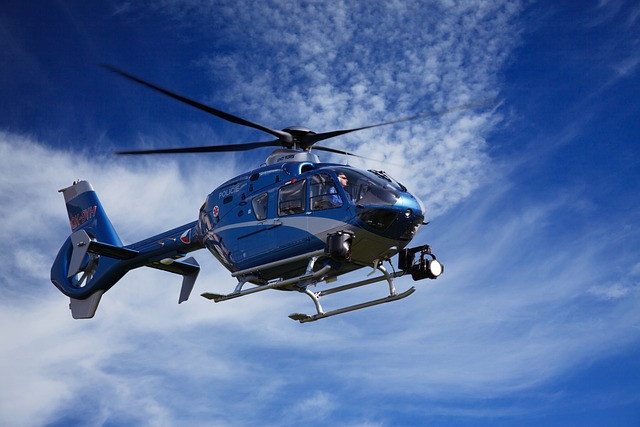
Up in the Air: The Challenges and Thrills of Helicopter Piloting
Being a helicopter pilot is no ordinary job. It takes nerves of steel, unmatched skills, and the ability to stay calm under pressure. The challenges you face as a helicopter pilot are like no other, but so are the rewards. Let’s take a closer look at the exhilarating world of helicopter piloting.
1. Unpredictable Weather: One of the biggest challenges helicopter pilots face is the constantly changing weather conditions. From gusty winds to heavy rain, you must be prepared to adapt quickly and make split-second decisions to ensure the safety of your crew and passengers.
2. Precision Flying: Helicopters are incredibly maneuverable, allowing you to fly into tight spots and hover in mid-air. However, this requires a high level of skill and precision. Whether it’s conducting rescue missions in rugged terrains or executing tricky landings on skyscraper helipads, your ability to handle the helicopter with accuracy is paramount.
3. High-Stress Situations: As a helicopter pilot, you may find yourself in high-stress situations where lives depend on your quick thinking. From medical evacuations to firefighting missions, you must keep a level head and prioritize tasks effectively, ensuring the success of the mission.
4. Breathtaking Views: Amidst the challenges, there is an undeniable thrill in witnessing the world from a bird’s-eye view. As a helicopter pilot, you get to witness astonishing landscapes, soar above majestic mountains, and observe city skylines that few others have the opportunity to experience.
5. Everlasting Adventure: Helicopter piloting is not just a job — it’s an ongoing adventure. Each flight brings new experiences and opportunities to hone your skills. You never know what the next mission will bring, making every day in the cockpit an exhilarating journey.
The life of a helicopter pilot is not for the faint of heart, but for those who are up to the challenge, it offers unmatched thrills, incredible sights, and a chance to make a real impact. Whether you dream of taking the skies for a career or are simply fascinated by the world of aviation, the challenges and thrills of helicopter piloting will leave you breathless.
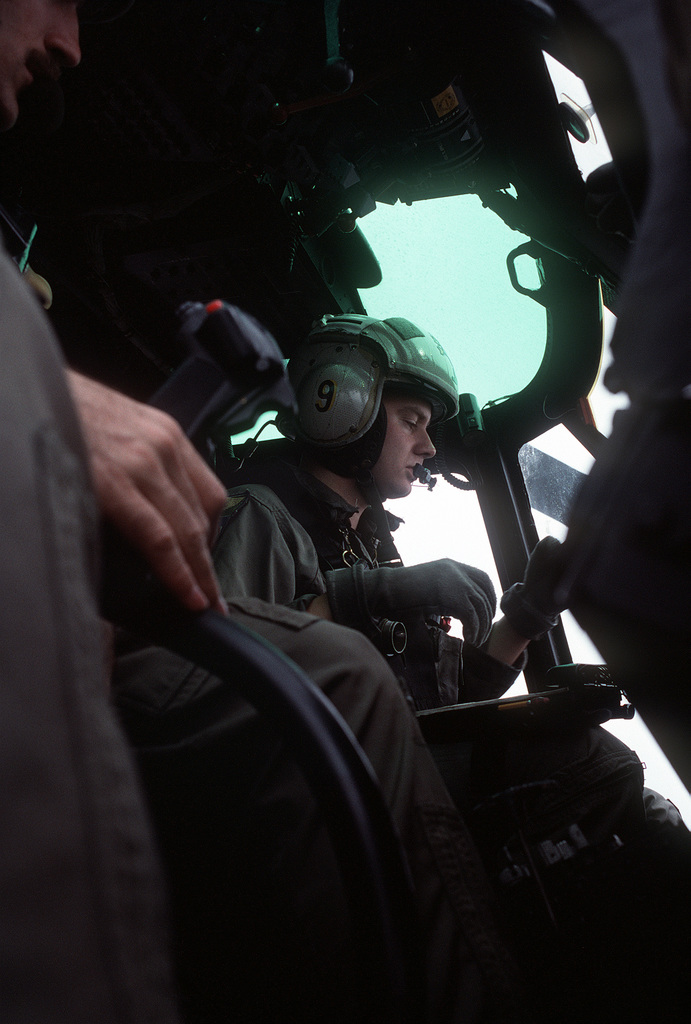
Decision Time: Choosing Between Helicopter and Airplane Pilot Training
Choosing between helicopter and airplane pilot training can be a crucial decision for aspiring aviators. Both paths have their own unique challenges and rewards, so it’s essential to carefully weigh your options before making a final decision. To help you make an informed choice, let’s delve into the key factors to consider when deciding between these two exciting career paths.
First and foremost, your preference for the type of aircraft you want to fly will play a significant role in your decision. If you’re drawn to the versatility and maneuverability of helicopters, then helicopter pilot training might be the perfect fit for you. With the ability to hover, land in confined spaces, and execute intricate aerial maneuvers, helicopter pilots operate in a completely different environment than their airplane counterparts. On the other hand, if you find joy in handling larger aircraft with long-range capabilities, airplane pilot training might be more suitable.
Another vital aspect to consider is the job market and career opportunities for each specialization. While the demand for both helicopter and airplane pilots exists, it’s essential to note that job prospects can vary depending on factors such as location and industry. Research the market trends in your area of interest and determine which career path aligns better with your long-term goals.
Taking Flight: Considerations when Pursuing a Career as a Helicopter or Airplane Pilot
Embarking on a career as a helicopter or airplane pilot is an exhilarating choice, filled with endless possibilities and unique challenges. Before you strap yourself into the cockpit and take off, there are a few important considerations to keep in mind. First and foremost, obtaining the proper education and training is essential. Whether you choose to pursue a degree in aviation or enroll in a flight school, acquiring the necessary knowledge and skills is a fundamental step towards success.
Once you’ve laid the foundation, it’s crucial to take into account the different paths available for aspiring pilots. Do you dream of navigating the skies as a commercial pilot, flying passengers to breathtaking destinations? Or perhaps your heart yearns for the adrenalin rush of serving as a rescue pilot, saving lives in emergency situations? Determining your desired specialization early on will help shape your journey and set you on the right track.
FAQs
FAQs – Is It Better to be a Helicopter Pilot or Airplane Pilot?
Q: What are the key differences between being a helicopter pilot and an airplane pilot?
A: The main difference lies in the type of aircraft you fly. Helicopter pilots operate helicopters while airplane pilots fly airplanes.
Q: Which type of pilot requires more training?
A: Becoming an airplane pilot typically requires more training compared to becoming a helicopter pilot. This is because airplanes have more complex systems and require a deeper understanding of aerodynamics.
Q: Are the prerequisites for becoming a helicopter pilot the same as those for becoming an airplane pilot?
A: The basic prerequisites, such as a medical certificate and minimum age requirements, are generally similar for both helicopter and airplane pilots. However, there may be some specific variations based on the regulations in your country.
Q: What are the job opportunities like for helicopter pilots?
A: Helicopter pilots can find employment in various sectors, including emergency medical services, law enforcement, tourism, offshore operations, and aerial surveying. The opportunities can vary depending on the location and demand for helicopter services in that particular area.
Q: What are the job opportunities like for airplane pilots?
A: Airplane pilots have a wide range of career options, including commercial airlines, cargo operations, private aviation, regional airlines, and even military aviation. The opportunities can differ based on factors such as pilot experience, specialized training, and the state of the aviation industry.
Q: Which type of pilot typically earns a higher salary?
A: Generally, commercial airline pilots, who primarily fly airplanes, tend to earn higher salaries compared to helicopter pilots. However, it’s essential to consider factors like experience, location, job demand, and the type of aircraft being operated.
Q: Are there any additional challenges specific to being a helicopter pilot?
A: Helicopter flying has its unique challenges since helicopters can hover, land vertically, and fly at low altitudes. Mastering these maneuvers requires additional skill and practice compared to flying airplanes. Additionally, helicopters often operate in more demanding situations, such as search and rescue missions in challenging environments.
Q: Can helicopter pilots become airplane pilots and vice versa?
A: Yes, it is possible for helicopter pilots to transition to becoming airplane pilots and vice versa. However, it would require additional training, certifications, and flight hours on the new aircraft type.
Q: Which path should I choose – helicopter pilot or airplane pilot?
A: The choice between becoming a helicopter pilot or an airplane pilot ultimately depends on your personal interests, career goals, and individual preferences. It’s important to research and consider the pros and cons of each path, evaluate your aptitude for different flying styles, and explore the various job opportunities available for each type of pilot.
Q: Are there any major similarities between being a helicopter pilot and an airplane pilot?
A: Both helicopter pilots and airplane pilots share common aspects such as the need for a valid pilot’s license, continuous training and proficiency checks, adherence to aviation regulations, and a commitment to safety. Additionally, they must both possess good situational awareness, communication skills, and the ability to make quick decisions in dynamic environments.
Concluding Remarks
In conclusion, when debating whether it is better to be a helicopter pilot or an airplane pilot, there is no definitive answer. Both roles come with their own unique set of skills, challenges, and rewards. Ultimately, it boils down to personal preference, passion, and career goals. If you seek the thrill of versatility, quick maneuverability, and close proximity to the ground, then becoming a helicopter pilot may be your calling. On the other hand, if you prefer the adrenaline rush of high speeds, long-haul flights, and navigating through the clouds, then pursuing a career as an airplane pilot might be more suitable. Remember, the sky is vast and filled with opportunities for both types of pilots. So, follow your heart, explore your options, and soar high towards the path that resonates with you. The choice is yours to make, and the sky eagerly awaits your decision.

